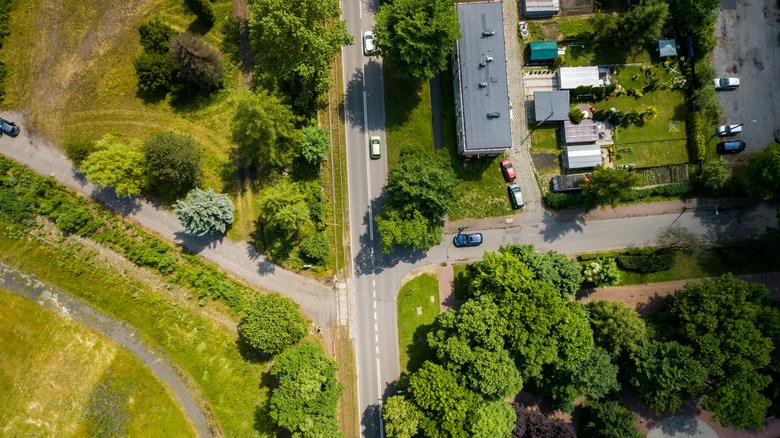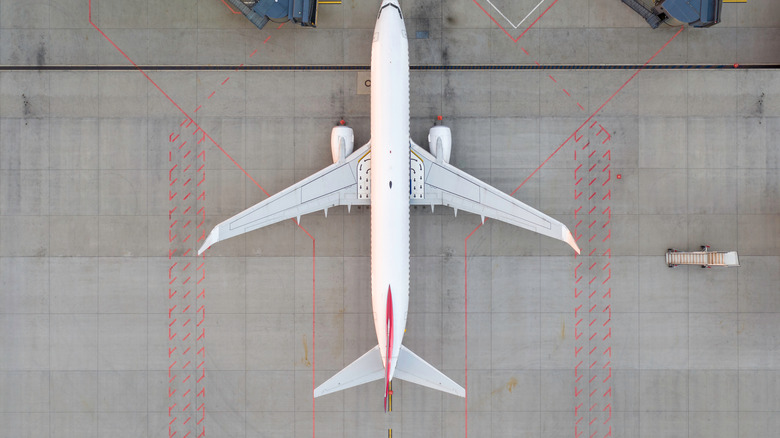Here's Who Really Owns The Space Above Your House
Picture it: The sun shines, the wind blows. John Doe enjoys his lush backyard. Maybe he reads a book, maybe he tends to his pool, or maybe he places a business call. Maybe he plants vegetables. Birds chirp. Moss sways from trees dotting his backyard. Neighborhood kids loudly play elaborate games of make-believe next door. Then, Doe hears a buzz. He looks up, and sees drone flying overhead. While Doe has not met his new next-door neighbors, he feels uncomfortable with the possibility that they might use technology to observe him during private moments.
So, what should happen? As a property owner, does Doe own the airspace above his house? Admittedly, Doe's best bet would be to hire an attorney. But, if he wants to go after it as a layperson, legal history and current airspace rules may prove helpful. As the do-it-yourself legal publication Nolo reported, an old British legal maxim connects with the resolution of these kinds of legal problems. (A maxim is a fundamental principle.) And as history buffs may recall, the British common law system preceded the modern U.S. legal system.
As House Digest previously explored, additional connections between colonial histories and contemporary home styles also persist in the United States. Both British and contemporary U.S. legal systems reflect Latin expressions. A relevant one is the following: "Cuiud est solum, eius est usque ad coelum et ad inferos." The expression means "whoever owns the soil, it is theirs up to the Heaven and down to Hell."
Airspace: An issue for homeowners and pilots
As Nolo noted, formal U.S. legal regulations have not caught up to drone technology yet. At the same time though, the Federal Aviation Administration has passed rules designed to decrease potential hazards for planes, persons, and real estate down below. However, these rules were not explicitly passed to cover recreational flying activities. Like Nolo explained, it is possible that a neighbor flying his drone over John Doe's property could be considered a permissible recreational flying activity, even if the hobby makes Doe deeply uncomfortable.
Further, different states have different rules in this respect. For example, in Florida, people are not permitted to use drones for the surveillance of another person in spaces where that person has a reasonable expectation of privacy. In California, people are not allowed to enter airspace for the purpose of recording another person in a way that could be considered objectionable by a sensible individual. And when the legal analysis requires reasonableness, local customs, norms and other relevant social (and economic) factors come into play.
As a property owner, Doe retains legal rights to some airspace above his property (via U.S. Legal). At the same time though, additional airspace above a homeowner's property is considered part of the public domain, meaning that part of the airspace belongs to the U.S. government.

